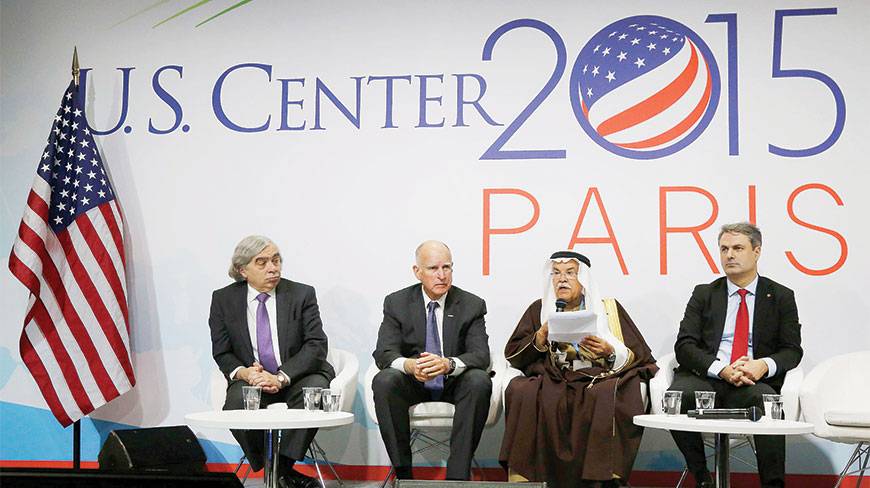En route to Paris, I was thinking that ending poverty would necessitate a much more ambitious goal from global leaders. Arriving in Paris and rushing straight to a side event on loss and damage was probably a good start to what was coming rest of the week.
I was able to learn from civil society groups that, initiated by Norway and joined by other developed countries, a group had shown reluctance to have “human rights” in the operative section of the agreement. “What? Why? What does it mean for gender equity, inclusiveness, inequality, climate-induced displacement?” were the thoughts that rushed through my mind.
At the side event, I was discussing the economic, non-economic, social, and cultural losses of the impacted communities in vulnerable countries, pushing for action on the existing agreements of COP. I was trying to argue that the additional rise in sea water levels and salt water intrusion would cause serious damage to livelihoods, with frequent disasters meaning having to move multiple times for the people in the coastal areas of Bangladesh, disrupting the education of their children, and perhaps even giving away daughters in child marriage, as they dropped further into poverty.
400,000 are displaced every year in Bangladesh. In most such developing countries, communities which have settled along rivers and coastlines are paying the highest price. I am not highlighting these points to guilt-trip anyone, but to remind the negotiators from rich countries of their responsibility, given their contribution to the current climate crisis.
We absolutely need to retain human rights in the language of the agreement, not just in the preamble but across and in the operating sections, and thereby recognise the need to take human safety and dignity along with gender-related differences into cognisance. How would we even discuss or place our concerns at this COP given the many restrictions? Civil society is being kept at bay, with most sessions being closed off.
If we had the opportunity to participate, we would be asking negotiators to stay focused on loss and damage, women and gender equity, and commit standalone work on it with adequate finances. Rich countries need to stop shying away from discussions on compensation; developing countries are not interested in charity. Instead the collaboration is moving on to a sensible green pathway without depriving the poor of the right to graduate out of poverty.
It appears that COP21 is all about India and the US. In earlier COPs, we saw countries such as China being at centre-stage while others were merely bystanders. This is in no way to suggest that one is oblivious to the “path of development” chosen by China and India, a path that is increasing emissions at alarming levels, but trying to hinge the Paris agreement on one or two countries is rather difficult to swallow.
One consistent factor in all COPs is the US. Led by the US and joined by other developed countries that are refusing to set the 1.5 degrees Celsius target, or even meaningfully commit to the common but differentiated responsibility, the negotiations are dragging. The emissions target should be at the core of all political commitments to address climate change.
There was immense celebration that countries had submitted there intended nationally determined commitments (INDC), which states the country’s ambition for reducing emissions, and it was becoming apparent that the INDCs are the most we can get at this point. Bangladesh emits 0.16 % (0.4 tons per capita), with Nepal, Pakistan, Sri Lanka, Malawi, Tuvalu, and Maldives claiming similarly low emission histories, yet they have started to plan and act. It is logical that all parties aim for the 1.5C or below 2C, for anything above that is proving catastrophic.
The Paris negotiations have not provided sufficient clarity on how developed countries would support developing countries in becoming more “green” in terms of development. Separate and additional finances for adaptation should be agreed upon in Paris, and the $100bn should be allotted for adaptation at the earliest possible opportunity.
The mitigation target/ambition of the Paris agreement needs to be settled at 1.5C — more than 100 countries are asking for it, after all. And I know that the LDCs are pushing for it. For the likes of the US, Australia, Saudi Arabia, UAE, Venezuela, to name a few, arguing to not set the goal at 1.5C is a result of their dependency on fossil fuels doing the talking. I am hoping that logic and pragmatism will prevail. The weaker the mitigation and adaptation efforts, the more loss and damage climate-vulnerable communities will be made to go through.
The next few days proved further stressful when I found out that there were more brackets than words in the draft of the text that was being negotiated at COP. Interestingly, 2015 started with Sendai, where the framework for disaster risk reduction was agreed and signed by nations in March. However, much was pushed to SDG and the UNFCCC Paris climate agreement at that point.
In September, world leaders signed off the SDGs for the next 15 years. Again, we saw climate change issues, targets, even discussion on finances, pushed to Paris. Will the Paris Agreement deliver? We are watching and working to push the pro-poor agenda in this agreement, because there is no alternative for a sustainable planet.
Source: Dhaka Tribune

